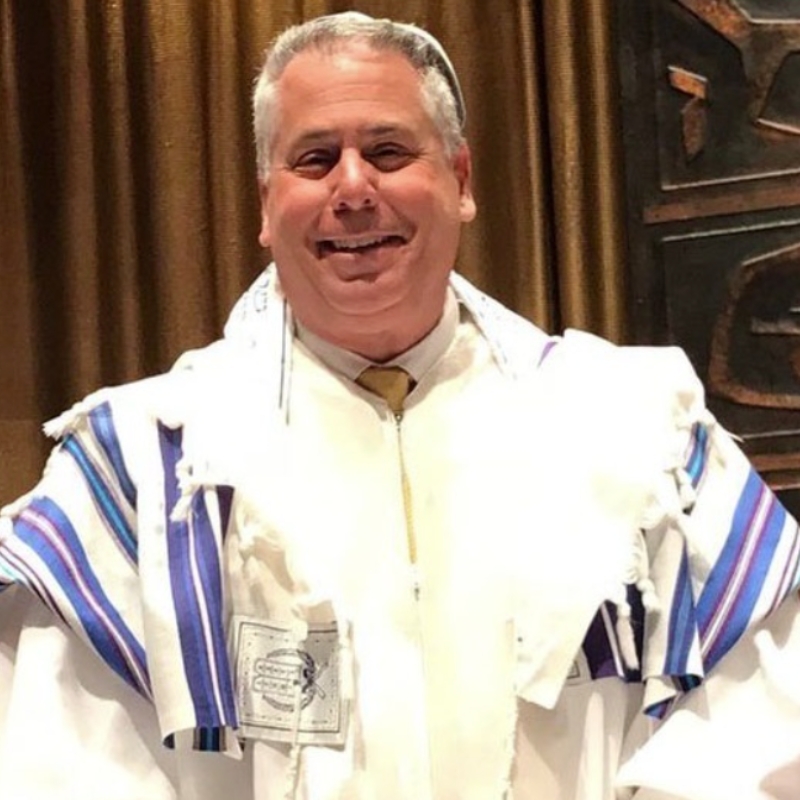The summer of my last year in college at Michigan, the landlord offered a break on my rent if I would help strip the paint off the kitchen walls and repaint them. At that time I was living on around $350 a month, so I was glad for any dent in my expenses.
He bought me the paint stripper and left me to my work. I wore only my shorts and worked bare-chested so as not to ruin my clothes. When I applied the first brush full of paint stripper, some splashed back on me. And it stung. Dang, it hurt. I quickly put on a tee shirt but my arms were uncovered. And every brush stroke some droplets shot back, burning my arms.
When the landlord returned I complained but he just laughed and said, “That’s paint stripper — it’ll take your skin right off. It will strip you down to your soul if you let it!”
Find more commentaries on Yom Kippur.
Since then, that’s how I’ve thought of Yom Kippur. The prayers we say on the Day of Atonement are meant to be soul-strippers:
Avinu Malkeinu… we have sinned before You…
Ashamnu, Bagadnu, Gazalnu… we are guilty, we have betrayed, we have stolen…
Al Chet shechetanu lifanecha… for the sin we have sinned before You…
And the hardest one of all:
Unetaneh-tokef k’dushat hayom…
We grant the holy power of this day
Ki hu no-ra v’a-yom…
The recent Reform Machzor, Mishkan HaNefesh, translates this last line as: “A day whose holiness awakens deepest awe.” While this rendering is lovely and poetic, it is not entirely accurate. A closer translation might be: “A day of awe and threat.”
This day actually threatens us. It threatens our self-satisfaction and justifications. It threatens our apathy and excuses. If we are to stand honestly on this day and take responsibility for our wrongdoings and shortcomings, poetic circumlocutions will not do the trick. Though none of us wants to get splashed with soul-stripper — much less stand, unvarnished, before God with all of our flaws — we mustn’t soften the language and reduce the impact.
This year of all years, this week of all weeks — the week of October 7 — how can we dare to shield ourselves from guilt and shame when, one year ago, our fellow brothers and sisters endured bullet wounds, bombs, torture, and worse on the Gaza border. According to the latest reports, maybe 50 or 60 of the hostages are still alive, malnourished, ill-treated, hanging on by a thread. How dare we say no to the pain of guilt when so many of our people suffer brutal, physical pain every hour of the day?
Find more commentaries on the Israel Hamas-War.
Unetaneh tokef grants us no illusion of covering up our failures, both of deed and of will. It says that we are counted and our deeds are measured, whether we like it or not. We stand, souls-stripped, our excuses no match for the words of the prayer that allows no covering up.
Our discomfort is what this day demands, not the easy promise of reconciliation and repentance.
In that spirit, we might pray this year, the year of October 7, Al chet shechetanu…
For the sin we have sinned by keeping silent in the face of brutal antisemitism endured on campuses all over the country.
For the sin we have sinned by not demanding the world intervene to return the hostages and end hostilities.
For the sin we have sinned by turning a blind eye to the suffering of both Jews and Palestinians while living our daily lives.
For the sin we have sinned by not flooding the streets to oppose the lies and defamation of Haitians, not to mention other immigrants.
Only when we stand stripped of excuses and apathy will we be able to complete the prayer: “For all of these sins, O God of forgiveness, forgive us, pardon us, grant us atonement!”
I pray with all my heart — may our words of repentance this year fly from our lips to our hands, making things better, just, and right.
Rabbi Jamie Gibson is the rabbi emeritus of Temple Sinai in Pittsburgh, PA. He holds the Rabbi Jason Z. Edelstein chair in Catholic-Jewish Dialogue at St. Vincent College in Latrobe, PA. He serves as the 2nd Vice Chair on the Pittsburgh City Human Relations Commission, which handles complaints of discrimination in housing and employment based on gender, race, age, disability and LGBTQ status.

